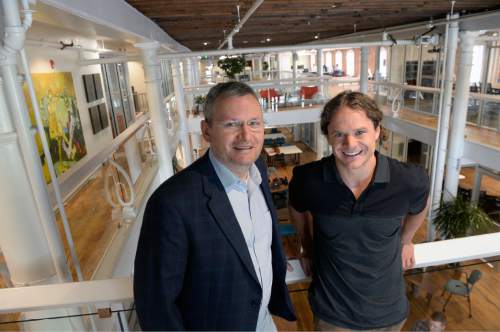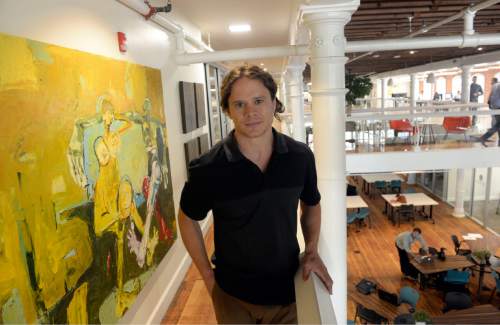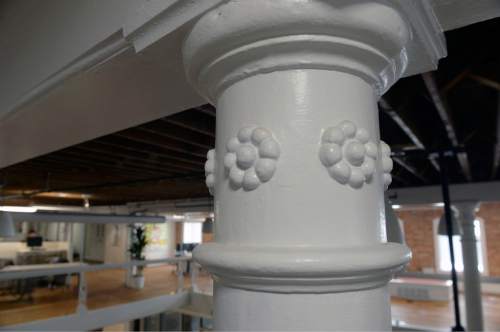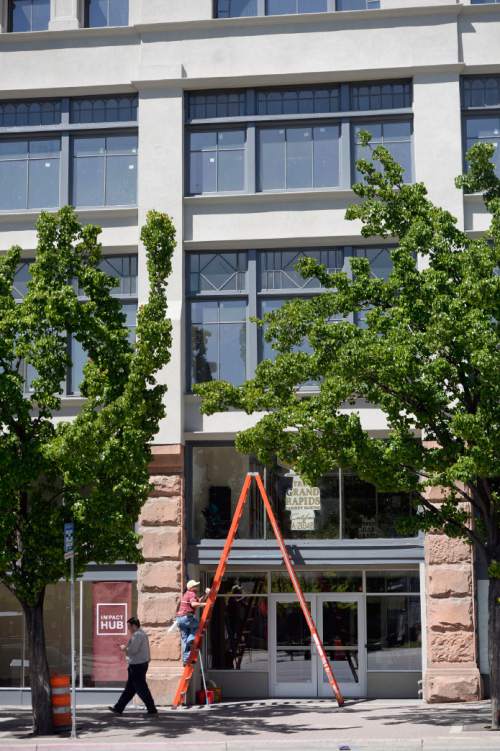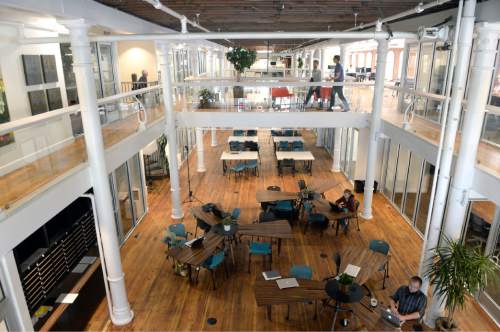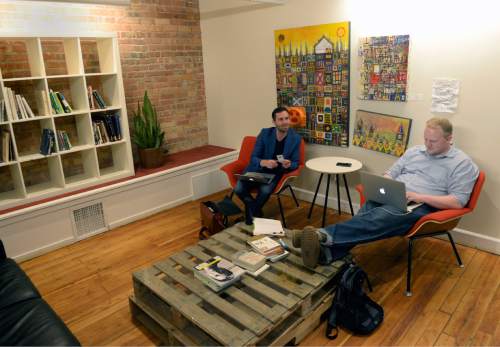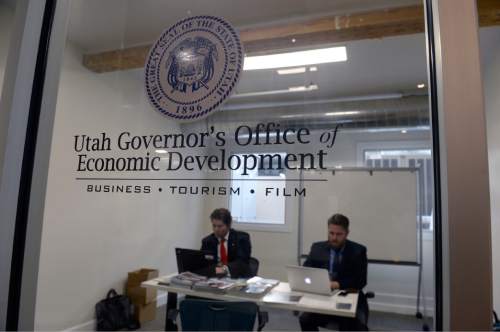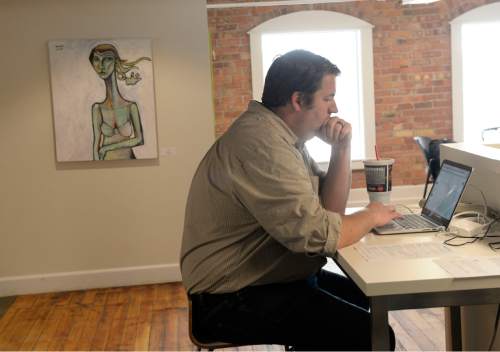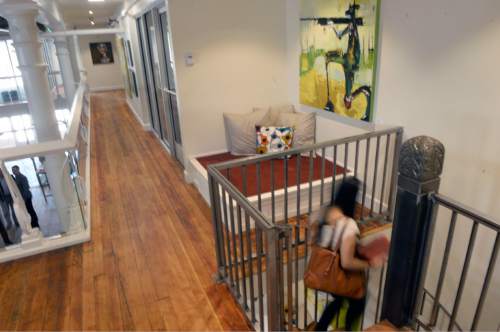This is an archived article that was published on sltrib.com in 2015, and information in the article may be outdated. It is provided only for personal research purposes and may not be reprinted.
In another sign of Salt Lake City's growing culture of young entrepreneurs, one of the top world providers of shared workspaces for fledgling companies now has a prominent presence downtown.
Impact Hub, part of a global network of centers in more than 60 cities, opened its doors recently in a historic building at 150 S. State St. after months of operating a few blocks away on Exchange Place.
The five-story, 119-year-old one-time farm-equipment store is known to many residents as the former headquarters of Zim's hobby and craft. Renovated by architect and former Salt Lake City Council member Soren Simonsen, the building will now serve as a brightly lit, trendy, high-profile gathering place for employees of startup companies and small businesses with a socially conscious bent.
The Salt Lake City site already has about 100 subscribing members, according to co-founder and CEO Dustin Haggett. Their interests are diverse, ranging from software development, clean air and alternative transportation to providing tractors to farm villagers in Mali.
Created in London in 2005, the Impact Hub network nurtures social enterprises, Simonsen said. These are defined as firms whose business models focus on environmental, communal or societal benefits.
Added Haggett: "There are a lot of great new ideas coming out of these hubs that are changing the way commerce functions."
Like several similar business incubators in the city's urban core, Impact Hub provides flexible workspaces, access to meeting rooms and basic office support at more affordable fees. The hub charges $35 to $380 monthly, depending on the level of services.
In addition to 18 offices, the new Impact Hub digs have a large, casual common area, with a vaulted ceiling and a sprinkling of work tables, desks and modular furniture designed to be moved around and reconfigured as needed.
Haggett said Impact Hub also offers resources and advice on business development, branding and marketing, as well as the many legal, financial and technical challenges that often face nascent companies.
Now with sites on five continents, Impact Hubs also regularly host training, community and networking events meant to foster and strengthen ties among entrepreneurs.
Sarah Knight is the lone paid staffer for a Utah chapter of the Child Rescue Association of North America, a group combating sexual exploitation. She called the group's membership in Impact Hub "a great investment."
On a shoestring budget, Knight said, access to relatively inexpensive basics — well-furnished office suites, conference rooms, a receptionist, Internet access and computer printers — "has been such a huge asset."
And while her group is a nonprofit, Knight said, sharing space with like-minded people full of capitalist and entrepreneurial ideas "is invaluable."
The renovated Impact Hub office — with its large sign overlooking the intersection of State and 200 South — is one of at least six incubators and so called "co-working" sites launched in the city's urban heart in recent years, many of them within remodeled spaces inside aging buildings.
"We're all working in the same arena, supporting an entrepreneurial ecosystem," said Simonsen, who also is Impact Hub Salt Lake City's president. "Each one has a little bit different focus and mission."
The trend toward co-working incubators in Utah's capital is being fueled in part by young entrepreneurs and business graduates from the University of Utah, Westminster College, Salt Lake Community College and other area schools. Simonsen said Impact Hub's new locale puts it close to those schools as well as a host of downtown amenities.
Renovating Impact Hub's new 15,000-square-foot space, Simonsen said, was "the most interesting project I've worked on." It took nearly 14 months and cost about $450,000, he said, but was well worth it.
"Location is vital," Simonsen said. "Being here was really important to us."
Twitter: @TonySemerad


